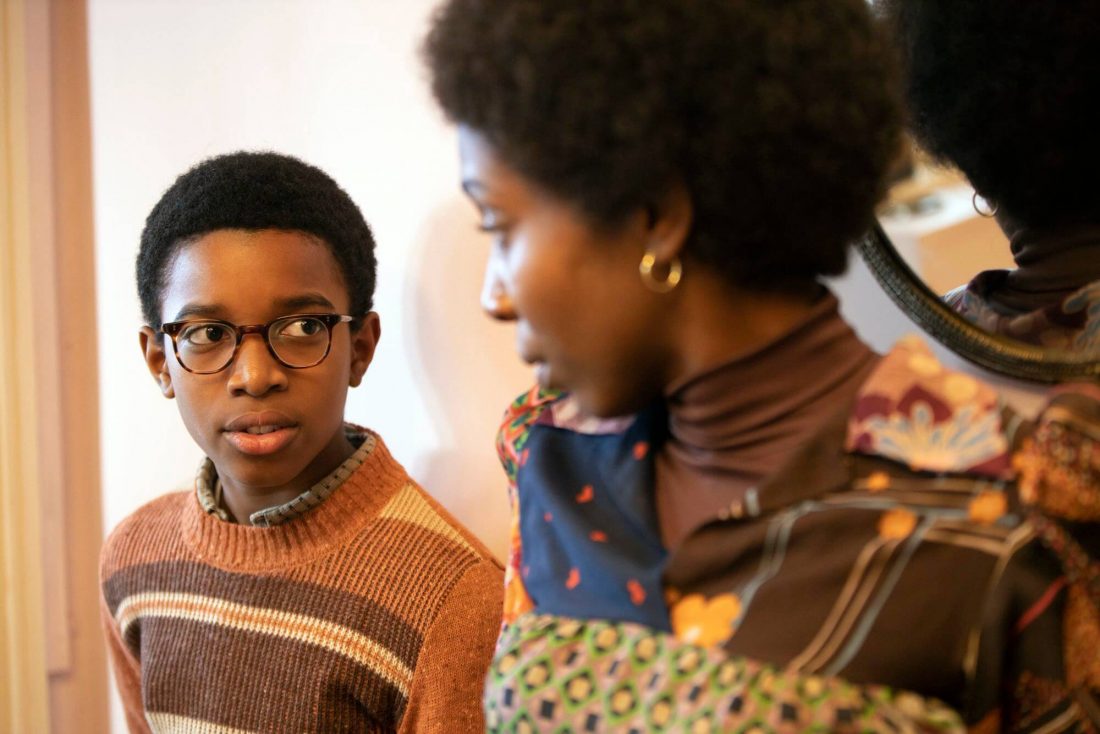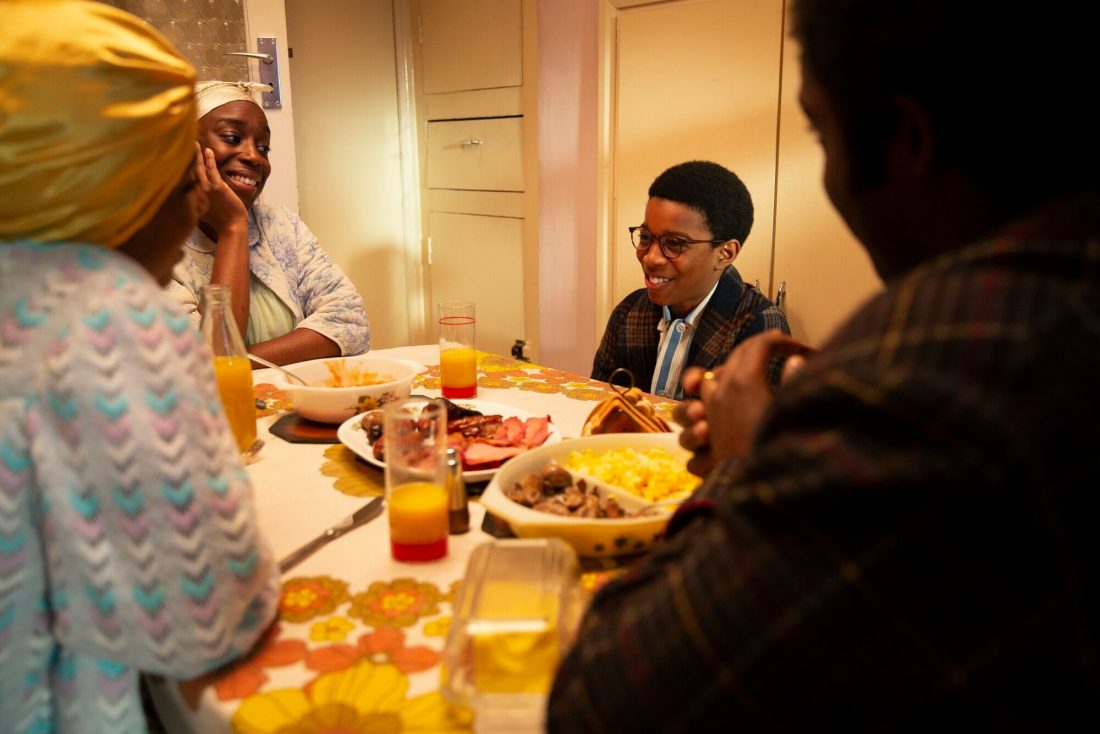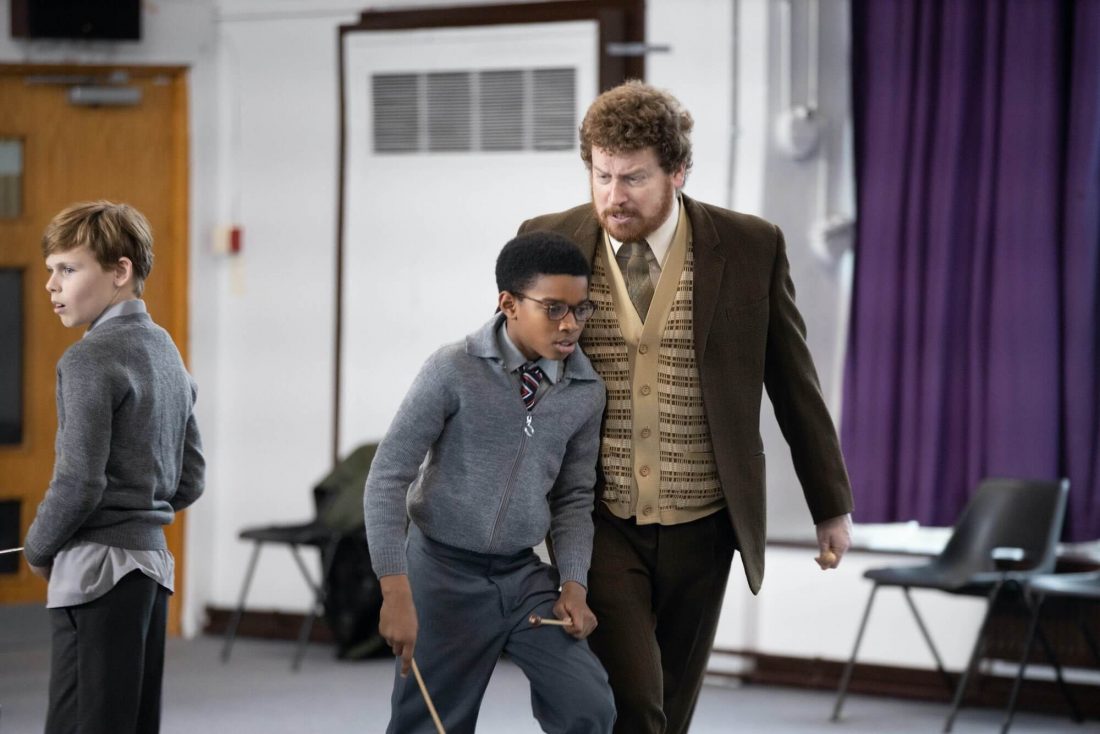Education, the final film in the Steve McQueen Small Axe anthology, highlights the coming-of-age story of a 12-year-old boy and the scandalous plight of immigrant children in the British education system in the 1970s.

Image Credit: BBC/McQueen Limited/Will Robson-Scott
The film stars newcomer Kenyah Sandy and a stellar cast including Sharlene Whyte (We Hunt Together, Casualty), Daniel Francis (Once Upon A Time, Homefront), Tamara Lawrance (The Long Song, Kindred), Josette Simon (Wonder Woman, Silent Witness) as well as BAFTA-winning Naomi Ackie (End of the F***ing World).
The film tells the story of Kingsley, a boy with a fascination for astronauts and rockets. One day, after being summoned to the Headmaster’s office for “for disruptive behaviour in class”, he is shocked to discover that he was being transferred to a school for those with “special needs.”
Distracted by working two jobs, his parents are unaware of what was an unofficial segregation policy at play, preventing many Black children from having the education they deserve until a group of West Indian women take matters into their own hands.

Image Credit: BBC/McQueen Limited/Will Robson-Scott
Sadly, this scenario of preventing many Black children from getting a good education was all too familiar during the 70s.
Tracey Scoffield, executive producer of Education explained how the film is based around a very particular set of circumstances which happened in Haringey, London.
She said: “In 1971, the local education authority decided to act upon a report which said that based on the IQ test, which were commonly run through primary schools at that time, West Indian children were educationally subnormal”.
The 1969 report in question, written by Alfred Doulton, Headmaster of Highgate School, was leaked and subsequently became known in the community as ‘The Doulton Report’.
“…a large number of West Indian children were simply bussed out to these educationally subnormal schools.”
There was widespread opposition to the banding proposals in the report because of the following passage in the leaked report: “On a rough calculation about half the immigrants will be West Indians at 7 of the 11 schools, the significance of this being the general recognition that their I.Qs work out below their English contemporaries. Thus, academic standards will be lower in schools where they form a large group.”
Scoffield explains: “The reasons they failed those IQ tests were variously to do with the fact that they were not born and brought up in England and didn’t know the culture, along with the fact that English might be their second language. Factors like these were not taken into account and a large number of West Indian children were simply bussed out to these educationally subnormal schools.”
The process of writing Education was an emotional experience for Steve McQueen who relied on memory, bringing his own lived experience, as well as research into co-writing the script.
McQueen said: “I had an unfortunate time growing up as a Black child in the British Education system. Sadly, I was not alone. Before our research began, I had never heard of the ‘Educationally Subnormal Schools’ that were being formed in the 1970s in this country. As we dug deeper, I realised there was a narrative within this neglect. I combined my own experience with the source material to tell the story of a young Kingsley.”

Image Credit: BBC/McQueen Limited/Will Robson-Scott
He continues: “By coincidence one of the mothers of a child that took part in Small Axe had attended my old school. She had read an article in which I’d said the school had been institutionally racist. Because of the racism she’d experienced there she had decided to home school her own children.”
“Though the film is set in the early 70s, there were many parallels with my experience in the education system in the 80s. To say much has changed is unfortunately not true.”
While Education was set during the 70s and one could argue that things have moved on and gotten better in the decades since, questions still need to be asked about how much damage the racism back then and since, has caused.
As McQueen explained: “Though the film is set in the early 70s, there were many parallels with my experience in the education system in the 80s. To say much has changed is unfortunately not true. With the high percentage of Black boys excluded from schools now, the fact that high numbers of young Black men are involved in knife crime shows the continuing neglect and lack of investment in Black children, particularly boys, in schools today.”
Is it still a case of segregation but by another name?
Education the final film from Steve McQueen’s Small Axe anthology, comes to BBC One and iPlayer at 9pm on Sunday 13 December.













1 comment
I must say having watched this and the other 3 episodes I’m confused.
Yes as a white middle aged woman maybe I am uneducated and slightly ignorant where BLM is concerned but I fully support the movement.
Education though to me showed more white kids in the ‘special needs’ class?
So although I got the message that it’s all about mistreatment of black kids,mainly boys,but shouldn’t the message be for all kids,no matter their race?
One could argue that it shows that black parents care more about their kids education than white kids parents? Obviously this is not the case nor the way it is meant,but how do I say it with the right words and context without sounding racist?